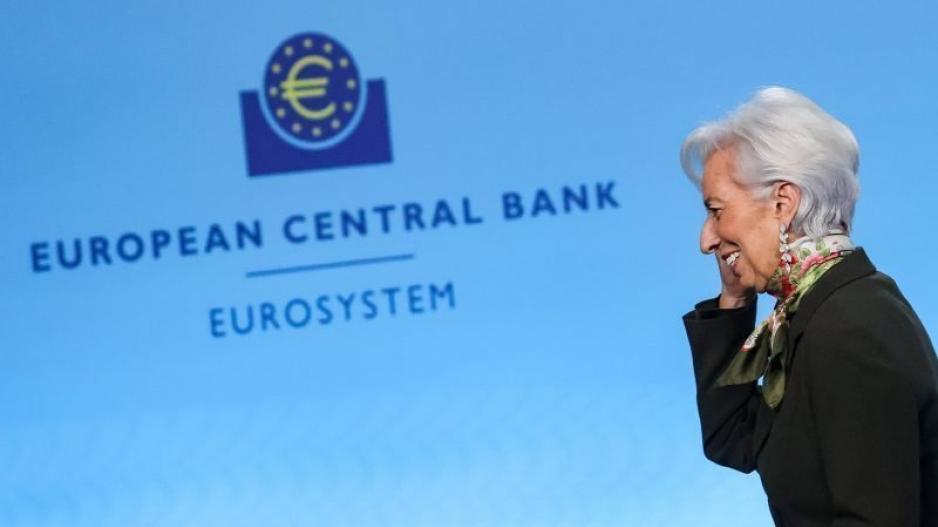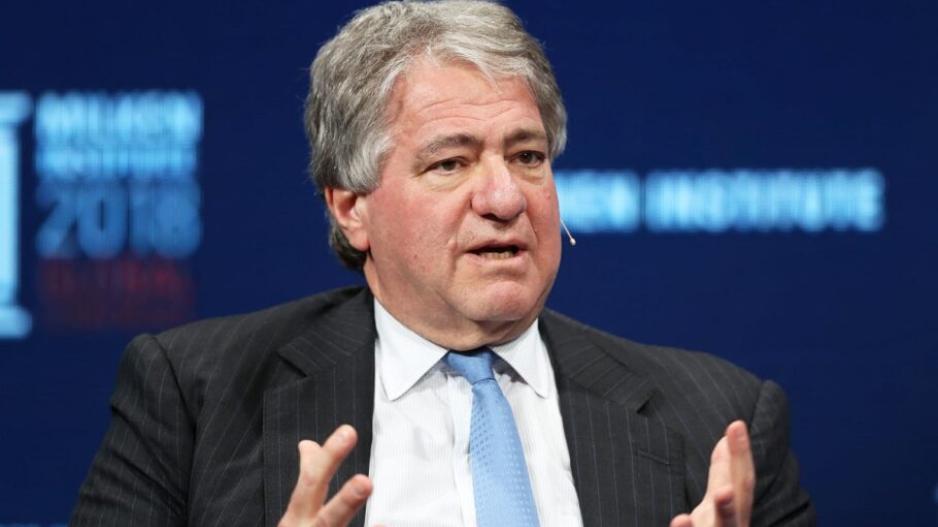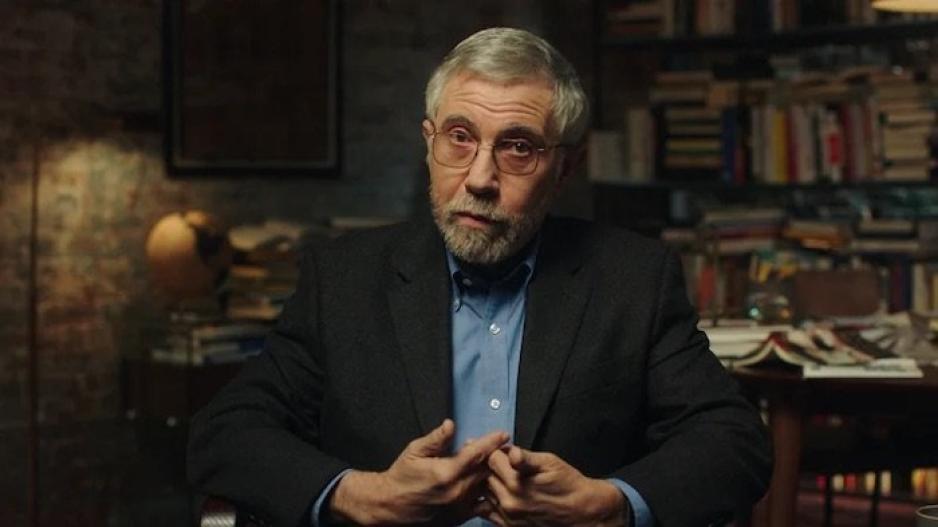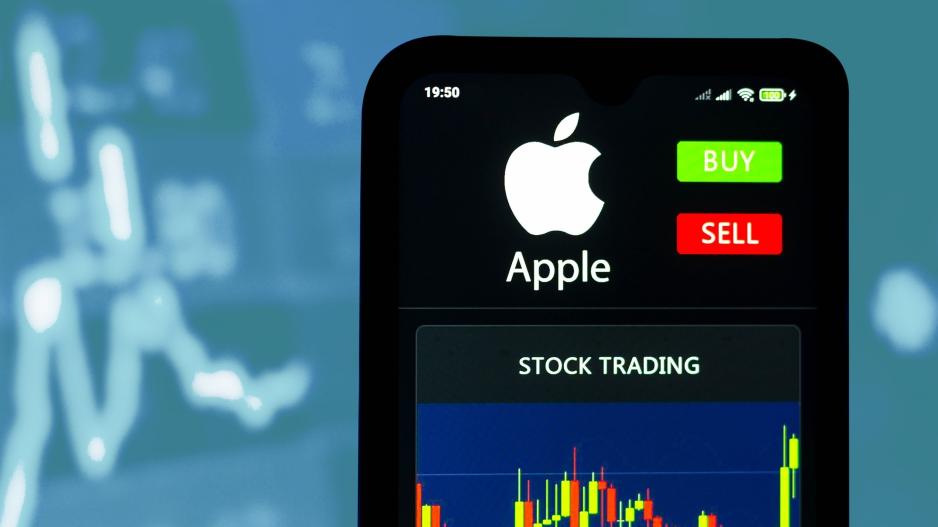Apple’s Stock Nosedive, the Rise of India & Paul Krugman's Warning of China’s Impending Economic Collapse
Today's Top Business & Finance Stories Around the Globe
Apple is witnessing a dramatic fall in its stocks, with a notable shrinkage of its market value by $200 billion in a 48-hour span. This sudden slump arises from China's move to possibly extend the restriction on iPhones within its governmental bodies and affiliated organizations.
In this period, Apple's stock has seen a decline of 5.1%, accumulating to a 7% decrease in total. This downturn has ripple effects on the US stock market, a phenomenon further amplified by the current economic uncertainties in China.
Presently, China, a major economic player on the global stage, grapples with instability in its property sector. This instability threatens the consumption rate of various products, from basic commodities to high-end electronics. Apple, with a significant stake in China for sales and manufacturing, faces compounded challenges, not least due to concerns about the Federal Reserve's strategies against looming inflation amidst a steadfast US economy.
Intriguingly, as highlighted by Wamsi Mohan from Bank of America, China's consideration to expand the iPhone ban aligns with Huawei's unveiling of its advanced 5G smartphone.
Should China maintain its stringent stance, it could send shockwaves across numerous US tech entities reliant on Chinese operations. This scenario has led to a dip in the valuation of Apple's suppliers worldwide.
Yet, Daniel Ives of Wedbush Securities offers a silver lining. He perceives the anticipated repercussions of the iPhone ban as potentially exaggerated, especially when juxtaposed with the projected sales of 45 million units in China in the upcoming year.
Ives underscores Apple's consistent profitability in the Chinese smartphone sector, suggesting that the tech giant remains a dominant force despite unfolding events.

The European Central Bank (ECB) is advocating for a swifter alignment of business and household practices with the objectives of the Paris Agreement. They've unveiled the outcomes of their latest environmental assessment.
This assessment delves into how various sectors might navigate under three potential environmental transition paths:
1. Fast-Track Green Shift: Champions eco-friendly strategies to achieve the Paris Agreement's emissions targets by 2030.
2. Moderate Pace Shift: Runs on the current trajectory until 2026 before ramping up to reach the 2030 targets.
3. Extended Delay Approach: Initiates only in 2026, with a relaxed approach that's unlikely to hit the 2030 targets.
A proactive shift to greener practices can safeguard banks from credit risks and reduce the chance of future financial lapses from entities reliant on conventional energy. As per the ECB's estimates, between 2023-2030, households would require investments ranging from 21-22 billion euros in the initial two strategies, compared to a mere 4 billion euros in the last approach. Such a move would also cap additional expenses for households, potentially saving them from increases of up to 31%-50% by 2030.
The ECB emphasizes that the financial risks businesses encounter will resonate with their associated banks. In scenarios where environmental efforts are postponed, banks could see their credit vulnerabilities surge by up to 100% by 2030. However, a more aggressive green shift could limit this to a 60% rise.
In essence, dragging our feet on environmental adaptation might inflate long-term costs, amplifying the financial strain due to increased environmental threats and hazards.
Recent insights from stress test analyses highlight the undeniable advantages of a swift eco-transition for both businesses and consumers. Jumpstarting the shift to renewables might be capital-intensive at the outset, but the mid-term fiscal safety net it offers can't be denied. By embracing this rapid change, eurozone companies project a whopping 2 trillion euros in sustainable investments by 2025. However, if this momentum slows down, the projected investments wouldn't reach 2 trillion euros until 2030, tallying up to a total of 3 trillion euros. Those dragging their feet in this eco-revolution face a conundrum: to remain relevant, they must amplify their green contributions. But this acceleration doesn't come without its pitfalls. Sectors heavily reliant on energy, such as metallurgy, mining, and power generation, are walking a tightrope. They grapple with mounting debts and profits taking a nosedive, a decline almost twofold that of their European counterparts.

Two private equity powerhouses, Carlyle Group and Apollo Global Management, are in the spotlight after directing a collective $900 million to their founders in connection with tax arrangements post their stock market debuts. This revelation has led to judicial inquiries, with both entities facing legal challenges from their investors.
IPOs frequently involve Tax Receivable Agreements (TRAs). In essence, these agreements, signed ahead of a company's stock market launch, are designed to reallocate certain tax responsibilities to the firm's original stakeholders. As per insights from Forbes, such agreements often translate into financial benefits, which could arise from various factors including asset reductions, operational downturns, or the valuation of non-tangible assets, such as brand image.
However, questions have arisen, regarding the authenticity of these payouts, especially in the context of these two financial behemoths. Several investors have raised concerns about the actual tax advantages gained from these organizational reshufflings.
Apollo, for one, has faced criticism for routing $570 million to its senior leadership, including its present CEO, Marc Rowan. Similarly, Carlyle Group has come under scrutiny for allocating $344 million for its internal stakeholders. Notably, Apollo's decision to give 85% of its tax advantages to its founders was a move ratified by an autonomous executive panel.
Separately, web hosting giant GoDaddy faced setbacks during its public listing. With initially reduced tax duties, the board's decision to sanction an $850 million distribution to its foundational investors, which counted KKR among them, has become contentious. A landmark ruling by a Delaware court favoring the investors in this matter is now seen as a potential game-changer in similar future litigations.

India is poised to clinch the title of the world's third most potent consumer force by 2027, driven by an expanding middle and high-income demographic, as noted in a study by BMI, linked to Fitch Solutions.
Currently in fifth place on the global scale, India is eyeing a jump, riding on an anticipated 29% swell in household consumption. The country's rate of per capita spending growth is forecasted to overshadow several of its Asian counterparts, growing annually at 7.8%.
Fast forward to 2027, and BMI predicts India's collective household spend touching a whopping 3 trillion dollars. In line with this, roughly a quarter of Indian households might boast an annual disposable income of $10,000. Key economic hubs like New Delhi, Mumbai, and Bangalore are anticipated to house the majority of these affluent households.
The spending momentum gains further traction from India's vast young demographic. A sizable 33% chunk, falling between 20 to 33 years, is set to be the torchbearers of this consumption upswing, especially in tech gadgets.
Urbanization trends are lending a hand to this growth story. With urban centers blossoming, giants like Apple and Samsung find fertile grounds for expansion. Apple recently pitched its flag with two new stores, and Samsung is eyeing a rollout of 15 premium outlets across major Indian cities by year-end.

In a bold protest for environmental change, Michael O'Leary, the head honcho of Ryanair, found himself on the receiving end of a cream pie outside the European Union's main building in Brussels. Ironically, O'Leary was about to highlight concerns regarding strikes at his Irish-based airline.
Activists didn't miss their mark, and amidst the creamy chaos, their message was clear, "Belgium welcomes you, now halt the pollution." The unflappable O'Leary, cleaning up, offered a wry "Well done."
All this happened as O'Leary stood with a cardboard representation of Ursula von der Leyen, Europe's Commission President, indicating his protest.
While Ryanair prides itself on efficiency and capacity, the Transport and Environment group, situated in Brussels, paints a different picture. Their data from 2022 indicates Ryanair's emissions reached a whopping 13.3 million tons of CO2, earning it the dubious title of the top environmental offender in the airline category.
Ryanair, not one to back down, points to their impressive passenger capacity and future plans. They have pledged that by 2030, a significant 12.5% of their flights will run on eco-friendly fuels.
In a cheeky debrief about the pie event, O'Leary quipped, "I just wish it tasted better." True to form, Ryanair's social channels showcased their pie-faced CEO, humorously comparing the cost of the pies to their flight tickets.
The airline's turbulence isn't restricted to pies. Ryanair's Belgium-based pilots have signaled another imminent strike, the sequence's fourth episode. Their gripes? Better compensation, more downtime, and what they perceive as the company's regulatory oversights.

Paul Krugman, an esteemed economist and Nobel Prize winner, has voiced concerns over China's looming economic challenges. He believes that for China to navigate through these turbulent waters, it must re-embrace its foundational communist values.
Highlighting China's unique economic position, Krugman, as quoted by Business Insider, stressed that China's economic strategies are sometimes at odds with traditional communist ideals. The country has shown a tendency to retain centralized control, often at the cost of economic freedom for its people.
China's current economic landscape, marked by deflationary pressures, mounting debts, decelerating growth rates, and increasing joblessness, calls for drastic interventions. However, Beijing's responses have predominantly been cautious, focusing on small-scale measures like tweaking interest rates or property market regulations, which might not be sufficient for lasting change.
Drawing attention to China's historical preference for savings, Krugman touched upon deep-seated cultural values. He also offered a somewhat controversial view of President Xi Jinping, suggesting that despite heading the Communist Party, Xi's policies reflect a more capitalist-conservative stance, even occasionally opposing social welfare measures.
Krugman cautions that without a strategic shift in approach, China might not only face economic setbacks but could also witness political upheavals. In his closing remarks, Krugman underscored the dichotomy between China's public communist declarations and the stark capitalist disparities evident in its economy.






